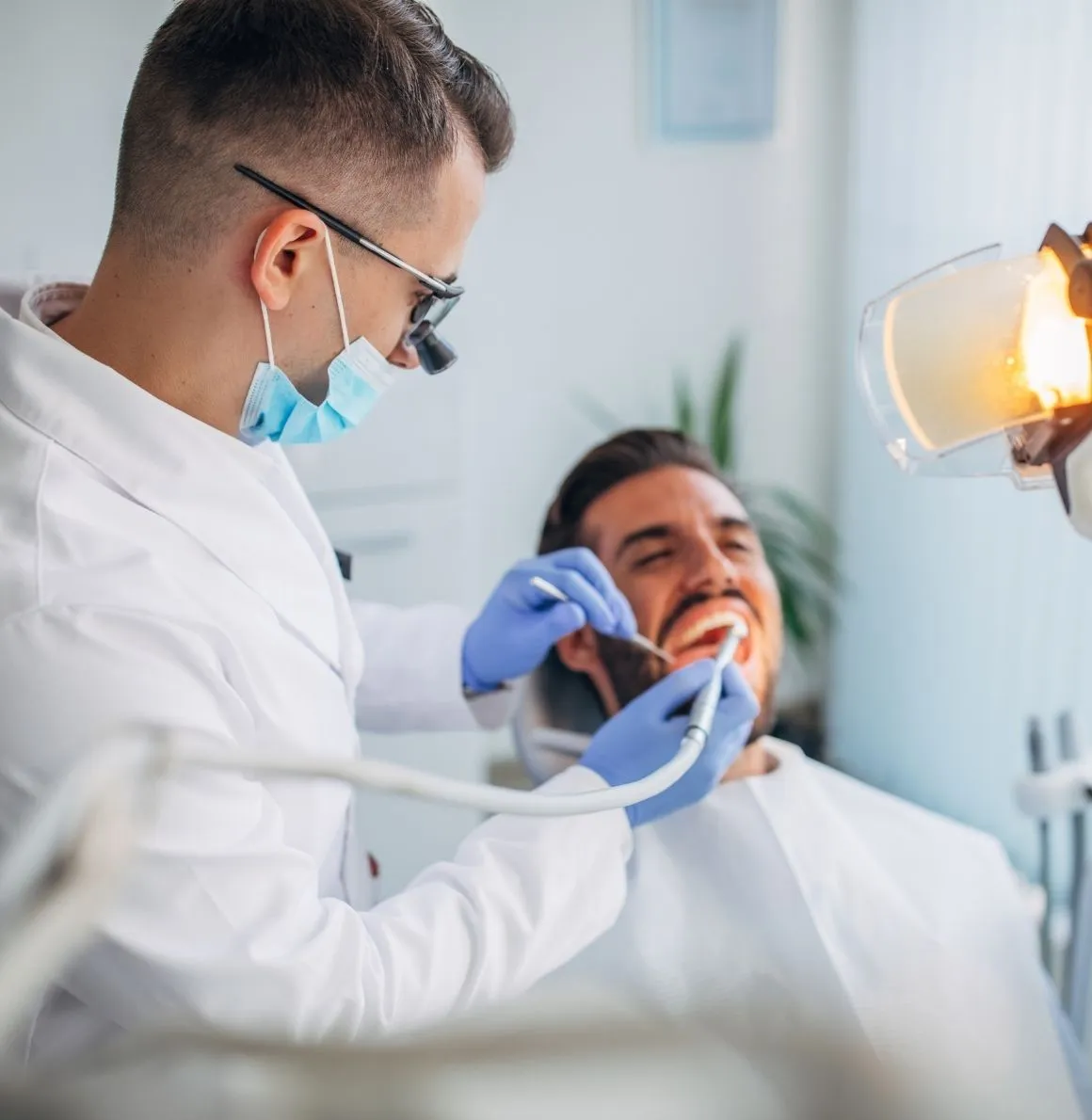HOME | FAMILY DENTISTRY
Bruxism
Bruxism is a disorder in which the patient grinds, gnashes or clenches their teeth. Although some individuals may experience bruxism during the day, it most frequently occurs during sleep.

Occasional teeth grinding is not harmful but when bruxism occurs often, the teeth can be damaged and other oral complications may occur. Individuals who have bruxism are more likely to suffer from other sleep-related disorders, such as snoring or sleep apnea. Sleep partners may notice bruxism in one another and dentists can often diagnose the disorder based on evidence of damage to teeth or crowns they discover during routine examinations.
Risk Factors For Bruxism
There is no specific known cause for bruxism, and for unknown reasons it is common in young children, often disappearing in adolescence. Individuals are more at risk for the disorder if they:
- Have certain abnormalities of the jaw
- Are stressed or anxious
- Have other sleep disorders
- Have missing, crooked, or misaligned teeth
- Drink alcohol to excess
- Are highly competitive or aggressive
- Smoke or drink caffeinated beverages
- Take illegal stimulants
Because stress, smoking, and consumption of alcohol, caffeine and recreational drugs can play a part in bruxism, healthy life changes and relaxation exercises, especially those involving the jaw and mouth, may help to resolve the problem.
Symptoms Of Bruxism
Over time bruxism can wear down enamel, chip, and even fracture or loosen teeth. Bruxism can also cause damage to the inner cheek or tongue. During a dental examination, the dentist may discover early signs of the disorder, which is one of the reasons that regular dental check-ups are vital. Apart from a sleep partner reporting the sound of teeth grinding or clenching, the patient may become aware of the condition because they experience one or more of the following symptoms:
- Facial or jaw pain
- Tight or fatigued jaw muscles
- Feeling that the jaw won’t open or close completely
- Earache
- Headache at the temples
- Difficulty sleeping through the night
- Increased tooth sensitivity
A clicking sound as the jaw is opened or closed, typical of patients with TMJ, is often indicative of bruxism.
Treatment Of Bruxism
In addition to lifestyle changes that may diminish symptoms of bruxism, treatment options may include the use of a custom mouth guard to protect teeth from grinding at night. In some cases, a muscle relaxant may be prescribed to relax the jaw muscles. In severe cases where the patient’s bruxism has not responded to treatment, orthodontic adjustment or surgery may be considered.
In cases where bruxism has damaged teeth, a dentist should be consulted for any teeth restoration that may need to be performed. When bruxism is noticed in young children, it should be reported to the dentist promptly. Although, in all probability, the problem in children will resolve on its own over time, it is important that the dentist be aware and keep a careful watch for possible complications.
Additional Resources
 5.0 Stars +200 Reviews
5.0 Stars +200 Reviews
“Dr. Goldstine and his staff demonstrate the very best of being both professional and caring. I would recommend anyone looking for a great dentist to try this office.” - C. R. (Verified Patient)
“I've been going there for 25 yrs. I have had the best dental care, ever. Never once did I consider going to another practice. All of the staff, are wonderful. Kudos to everyone.” - D. W. (Verified Patient)
“Via a referral from a friend and colleague, our family has been at the receiving end of over 40 years of extraordinary dental and hygiene care from Dr. Goldstine (father & son) and the entire Dutch Neck Dental staff. We love to smile… thank you!” - G. H. (Verified Patient)

Request Your Appointment
Exceptional Care for Every Smile

Get In Touch
Come Visit Us!
Whether you're due for a routine check-up or ready to transform your smile, we’d love to welcome you to our East Windsor office. With flexible hours, a convenient location, and a team that treats you like family, your best dental experience starts right here.
